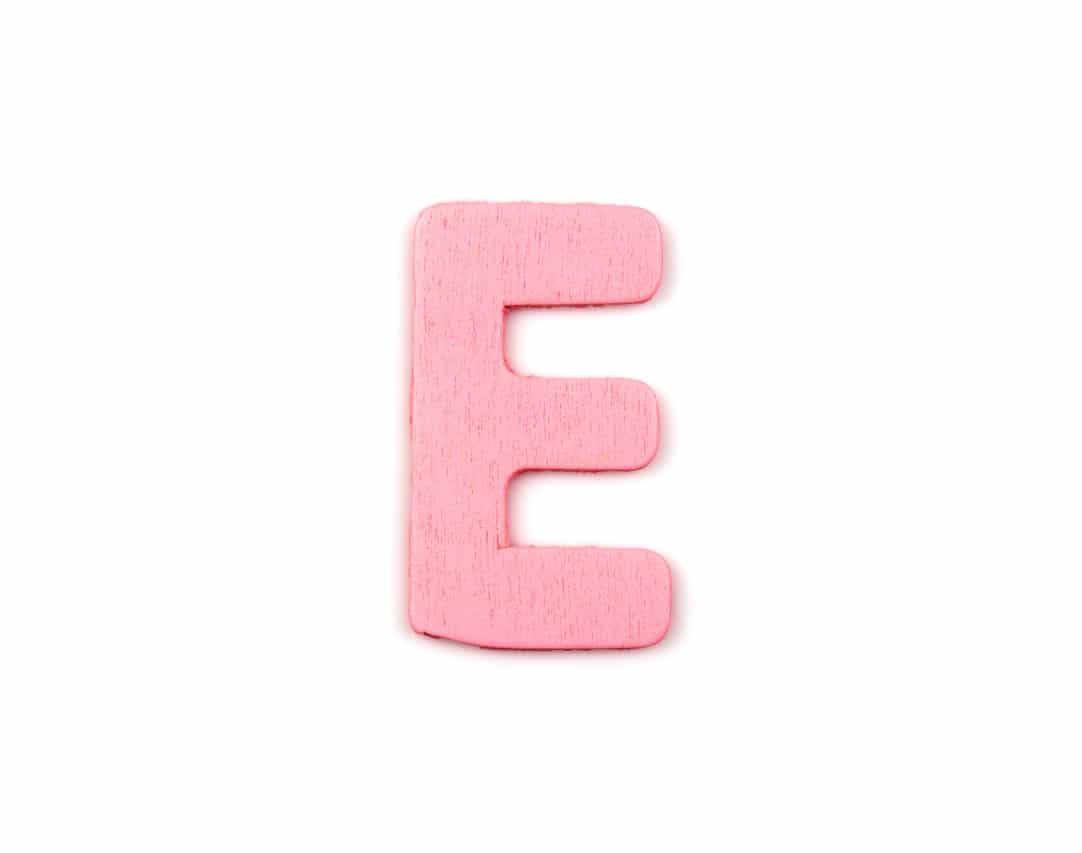
Spanish Words That Start With E
DATE:
Did you know that the letter ‘E’ is a bona fide star in the English alphabet? Seriously, it takes center stage as the most frequently used letter! And guess what? It’s not taking a backseat in Spanish either. When you embark on the journey to educate yourself in the Spanish language, mastering Spanish words that start with the letter ‘E’ is essential.
This isn’t just about acing an exam or sidestepping an error—it’s far bigger than that. We’re talking about constructing the very structure of your language skills, the skeleton of your conversational prowess. Learning these ‘E’ words is like setting a firm foundation for a house; it’s about etiquette, charm, and a strict adherence to the fundamentals. It’s a critical step whether you’re male, female, or anywhere on the gender spectrum. So, before we publish our thoughts to the world or light this educational fire, let’s roll up our sleeves and dig deep into the enormously fascinating universe of Spanish words that start with ‘E’!
History Of Letter E In Spanish Language
The Origins
In Latin, the letter ‘E’ originated from the Greek letter ‘Epsilon.’ And just like atoms have different isotopes, this letter has various pronunciations and usages in the Spanish language. From Spain to America, you’ll encounter the influence of ‘E’ in countless words. Isn’t it fascinating how a single letter can weave itself so deeply into the fabric of language?
The Importance
Did you know that many commonly used Spanish words that start with E, like “ella” (she) and “entre” (between), are like the electrons in an atom? They’re fundamental to the structure of sentences and expressions. Dive into the etymology, and you’ll uncover layers of culture, history, and linguistic evolution.
Common Mistakes
Sometimes people mix up the pronunciation or usage of Spanish words that start with E. It’s a common error but easy to correct with some good old-fashioned education from Dedicated Teachers. Words like “edición” (edition) and “edificio” (building) can throw a wrench into the conversation if you’re not careful. But no worries, we’re here to iron out the kinks.
Spanish Nouns Starting With E (Sustantivos)
Nouns, the cornerstone of any language! These are the words we use to name people, places, things, or ideas. Imagine them as the suns around which other words in a sentence orbit. Ready to explore? Let’s delve into a captivating list of Spanish nouns that start with the letter E.
|
Spanish |
English |
|---|---|
|
Escuela |
School |
|
Elefante |
Elephant |
|
Empleado |
Employee |
|
Espejo |
Mirror |
|
Estrella |
Star |
|
Enemigo |
Enemy |
|
Economía |
Economy |
|
Elección |
Election |
|
Equipo |
Team |
|
Examen |
Exam |
|
Efecto |
Effect |
|
Enero |
January |
DID YOU KNOW…?
In the Spanish alphabet, the letter “E” is pronounced “e” (like the ‘e’ in “bed”) and is one of the most frequently used letter in the language. Its prominence mirrors that of the letter “E” in the English alphabet, where it’s also the most commonly used. In both languages, this vowel plays a pivotal role, weaving its way through countless words and expressions!
|
Spanish |
English |
|---|---|
|
Edificio |
Building |
|
Ecosistema |
Ecosystem |
|
Ensalada |
Salad |
|
Estación |
Station |
|
Energía |
Energy |
|
Emoción |
Emotion |
|
Empresa |
Company |
|
Escritorio |
Desk |
|
Estudiante |
Student |
Now, here’s an intriguing tidbit: the word “Estrella” not only means “star” but it also signifies something exceptional or distinguished in a certain context. Think “estrella de cine” (movie star). It’s fascinating nuances like these that make learning Spanish nouns that start with E such a compelling journey.
Spanish Verbs Starting With E (Verbos)
Ah, verbs! The action heroes of language. These words describe actions, states, or occurrences and serve as the backbone of a sentence. Intrigued? Buckle up, because we’re going to zoom through an electrifying list of Spanish verbs that start with the letter E.
|
Spanish |
English |
|---|---|
|
Estudiar |
To study |
|
Escuchar |
To listen |
|
Escribir |
To write |
|
Estar |
To be ( temporary) |
|
Empezar |
To start |
|
Entender |
To understand |
|
Exponer |
To expose |
|
Eliminar |
To eliminate |

|
Spanish |
English |
|---|---|
|
Evitar |
To avoid |
|
Esquiar |
To ski |
|
Exigir |
To demand |
|
Enviar |
To send |
|
Escalar |
To climb |
|
Ejercer |
To exercise |
|
Encender |
To light |
|
Encontrar |
To find |
|
Esperar |
To wait |
|
Elogiar |
To praise |
|
Errar |
To make a mistake |
Well, there you have it, a list that could practically set the stage for your Spanish conversations! Now, here’s a slice of interesting pie: the verb “Estar“ is one of two verbs that can mean “to be” in Spanish, the other being “Ser.” The trick is that “Estar” is used for temporary conditions while “Ser” is for permanent ones. Remember to visit our blog “Ser vs. Estar” to know more!
Spanish Adverbs Starting With E (Adverbios)
Adverbs are like the seasoning in a dish. Too little, and it’s bland; too much, and it’s overwhelming. Learning Spanish adverbs that start with E can add that dash of spice to your sentences. Some of these adverbs are universal, like “efectivamente” (effectively), while others like “entre” (between) are more situational. But they all have one thing in common: they can change the meaning of a verb, adjective, or even another adverb.
|
Spanish |
English |
|---|---|
|
Exactamente |
Exactly |
|
Específicamente |
Specifically |
|
Efectivamente |
Effectively |
|
Exteriormente |
Externally |
|
Especialmente |
Especially |
|
Extrañamente |
Strangely |
|
Encima |
Above/on top |
|
Establemente |
Stably |
|
Equitativamente |
Equitably |
|
Evidentemente |
Evidently |
|
Spanish |
English |
|---|---|
|
Estrechamente |
Closely |
|
Emocionalmente |
Emotionally |
|
Erróneamente |
Erroneously |
|
Espontáneamente |
Spontaneously |
|
Estéticamente |
Aesthetically |
|
Excesivamente |
Excessively |
|
Extensamente |
Extensively |
|
Enérgicamente |
Energetically |
|
Excepcionalmente |
Exceptionally |
|
Eficientemente |
Efficiently |
Well, there you have it—a list full of nuances, like a box of assorted chocolates. Now, let’s delve into some adverbial trivia: “Encima,” which means “above” or “on top,” can also be used colloquially in Spain as “besides” or “moreover,” adding an extra layer to a statement. Just imagine someone saying, “I don’t want to go out. It’s cold and, on top (encima), it’s raining.” It’s these delightful twists that make Spanish adverbs starting with E a trove of exploration.
Spanish Adjectives Starting With E (Adjetivos)
Adjectives—the vibrant colors on the canvas of language. These words are used to describe or modify nouns, giving us the lowdown on qualities, quantities, or states. If you’re ready to jazz up your Spanish vocabulary, let’s leap into a vivid array of Spanish adjectives that start with the letter E.
|
Spanish |
English |
|---|---|
|
Elegante |
Elegant |
|
Enorme |
Enormous |
|
Efectivo |
Effective |
|
Eficiente |
Efficient |
|
Económico |
Economic |
|
Eléctrico |
Electric |
|
Estético |
Aesthetic |
|
Eterno |
Eternal |
|
Equitativo |
Equitable |
FUN FACT…
The word “esperanto,” starting with ‘E,’ is a language created to promote global harmony. It’s derived from the Spanish word “esperanza,” meaning “hope.” How’s that for a hopeful “E” word?
|
Spanish |
English |
|---|---|
|
Exótico |
Exotic |
|
Emocional |
Emotional |
|
Entusiasta |
Enthusiastic |
|
Extraño |
Strange |
|
Esencial |
Essential |
|
Exquisito |
Exquisite |
|
Exacto |
Exact |
|
Efímero |
Ephemeral |
|
Espontáneo |
Spontaneous |
So there’s our star-studded line-up of adjectives that begin with E. Let’s highlight “Efímero,” which means “ephemeral.” The beauty of this word lies in its very meaning—something short-lived or transient. It’s a poetic way to describe things that have a fleeting presence in our lives, adding a dash of romanticism to the way we perceive our world.
Remember, the adjectives we’ve explored are just a snapshot, a quick ‘selfie,’ if you will, of the dazzling world of descriptive Spanish words. To explore every nook and cranny, you’ll have to embark on your linguistic journey. Why not start today?

You Have Learned Spanish Words Starting with E
Remember how we likened learning Spanish words that start with E to understanding atoms in science? By now, we hope you’ve realized the enormous impact of even a single letter in shaping your Spanish language skills. From enhancing your expressions to creating vivid sentences, these words can elevate your command over the language.
Interested in diving deeper? Our Dedicated Teachers and Student Success Advisors are always here to guide you. Start with a free 1:1 class or free 7 days of group classes. Take that “E-fficient” step towards mastering Spanish today!
Feel free to comment and share this article if you found it helpful. Hasta luego!











